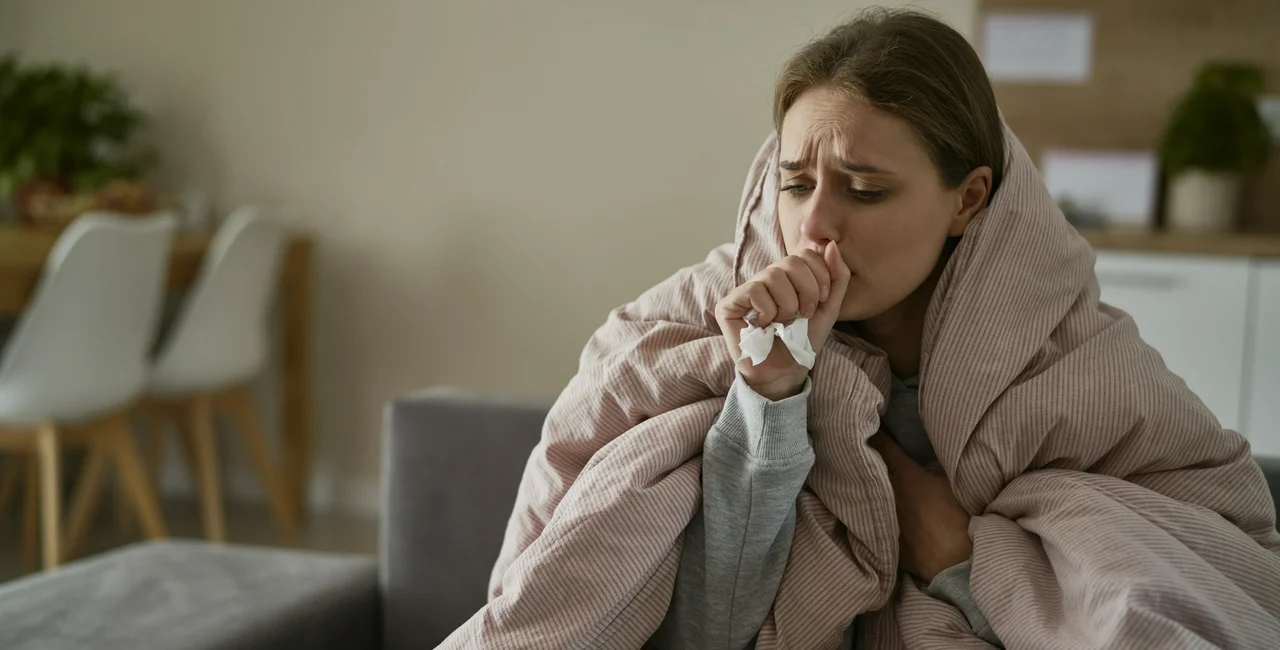The number of people suffering from respiratory diseases, including influenza, rose by one-third in the Czechia over the past week, the Health Ministry said.
While Covid-19 has dominated statistics for the past two years, this year other previously common infections such as respiratory syncytial virus (RSV), which causes respiratory tract infections, are on the rise, along with the flu.
The ministry registered 2,342 cases of respiratory ailments per 100,000 people last week, an increase of 33.6 percent compared to the previous week.
The numbers are rising in all regions and in all age groups. Most of the Czech Republic is experiencing an epidemic of acute respiratory infections, but two regions are exceptions. In Prague, the increased incidence has not yet reached the epidemic stage. In South Bohemia, the current situation is borderline, with an epidemic level in only two districts.
The RSV wave has considerably increased the number of patients in children's wards of hospitals, the National Institute of Public Health (SZÚ) announced.
Avoid crowds and follow basic hygiene rules
Matyáš Fošum, director of the Health Ministry’s Department of Public Health Protection, said the number of patients with respiratory diseases, including influenza, will increase again in the following weeks before it eventually subsides.
“People should avoid large groups as much as possible and especially follow basic hygiene rules to an increased extent, such as sneezing into a tissue,” Fošum said.
“To strengthen immunity, it is advisable to consume a sufficient amount of fruits and vegetables as natural sources of vitamins,” Fošum added.
People should also limit shaking hands, hugging when greeting, or touching the face and eyes with unwashed hands. In case of illness or its symptoms, Health Ministry recommends staying at home and limiting contact with risk groups such as the elderly, or people with chronic diseases.
The Liberec Regional Hygiene Station (KHS LK) added that people with an acute respiratory infection should not come into contact with high-risk children. If it is not possible to avoid it, it is advisable to use a mask that covers the nose and mouth and wash your hands properly before handling the child.
RSV can cause serious breathing problems in children, and is especially dangerous for children under 2 years of age and for premature children.
The virus can persist for several hours on hard surfaces such as tabletops and toys. It lasts for a significantly shorter time on soft surfaces such as paper tissues. Frequent hand washing and wiping surfaces with detergent or disinfectant water significantly reduces the spread of infection. Sick persons should also not share dishes and cutlery.
Symptoms include loss of appetite and a cough
RSV’s incubation period is usually four to six days. The disease is characterized by a runny nose, loss of appetite, and later by a cough. People infected with the RSV are usually infectious for three to eight days, except for immunocompromised people who can shed the virus for up to four weeks.
“The virus spreads through droplets produced by coughing and sneezing. Droplets with the virus that become airborne can be inhaled by a susceptible person. Infection can also occur if the virus gets on the mucous membrane of the eyes, mouth or nose. People can also become infected indirectly, through objects contaminated with the virus,” Dr. Jana Prattingerová, head of KHS LK’s anti-epidemic department, said.
The SZÚ said there was also an expected rise in Covid infections already in some European countries. Currently in the Czech Republic, the prevailing strain is Omicron BF.7 and a minor rise has been detected in BQ.1. So far, no unusual course of the disease has been detected in these variants.












 Reading time: 3 minutes
Reading time: 3 minutes 































